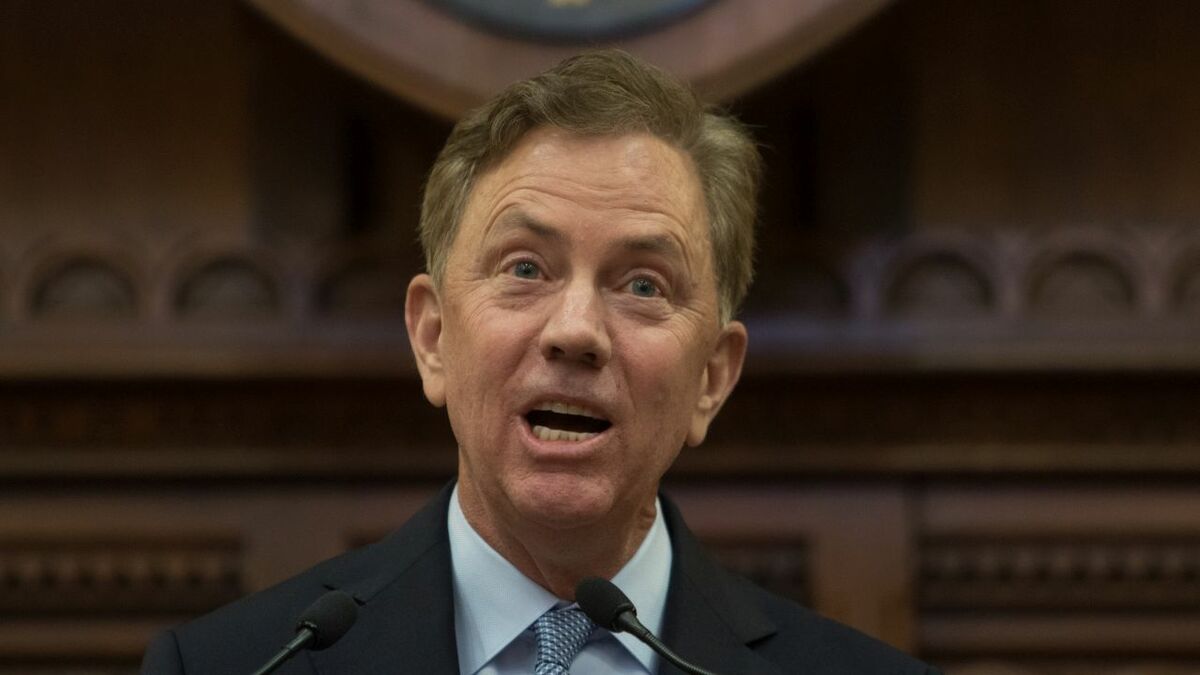Reactions to Gov. Ned Lamont”™s State of the State address, and the nearly concurrent release of his budget proposal, were mixed.
While most observers agreed with the governor”™s “cheerleader in chief” remarks ”“ “No more badmouthing the great state of Connecticut,” he declared near the end of the speech ”“ there was some divisiveness about the substance of what he is actually proposing.
“It was very positive that the governor focused a lot on economic development and job creation,” said Joe Brennan, president and CEO of the Connecticut Business & Industry Association (CBIA). “The economy has been showing better signs for the last three quarters, and while job growth is still lagging, it looks like we”™re starting to turn the corner.”
 But Brennan was less upbeat about Lamont”™s proposal to raise revenue, in part, by eliminating $28 million in previously approved tax relief for Connecticut businesses, and maintaining the 10% surcharge that had been set to expire in tax year 2021, saying that the switch, which “we had not anticipated,” could be a net negative.
But Brennan was less upbeat about Lamont”™s proposal to raise revenue, in part, by eliminating $28 million in previously approved tax relief for Connecticut businesses, and maintaining the 10% surcharge that had been set to expire in tax year 2021, saying that the switch, which “we had not anticipated,” could be a net negative.
Fairfield”™s Republican First Selectwoman and former state Rep. Brenda Kupchick said deferring such tax relief sends the wrong message to businesses considering coming to Connecticut.
“The governor should know that consistency is very important to growing the economy,” she said. “When you announce you”™re going to phase something out and all of a sudden the governor says we”™re not doing that, it”™s not good for me and the other towns that are looking to grow their grand lists.
“We need five- to 10-year plans, not year-to-year. Predictability is very important to business, and it makes them nervous when that predictability isn”™t there.”
Brennan said the CBIA largely welcomes the state”™s new economic development strategy ”” the Jobs CT initiative”™s “earn as you go” approach to granting incentives, rather than the front-loaded process favored by former Gov. Dannel Malloy ”” but cautioned that how it could impact small businesses remains to be seen.
Under that program, businesses creating 25 or more full-time jobs can retain (or be rebated) 25% of the withholding taxes from the new employment for up to seven years.
Brennan said the CBIA was also viewing Small Business Express 2.0 with hopeful caution. Named and partly patterned after another Malloy program and administered by the Department of Economic and Community Development, that initiative will focus on partnering with banks, helping to guarantee their loans and spur more private investment in small businesses.
Joe McGee, vice president, public policy and programs at The Business Council of Fairfield County, felt that Jobs CT was “a little cleaner” than Malloy”™s approach, as “It”™s tied directly to job growth and since it”™s based on payroll, you can see what they”™re doing when you collect the payroll tax.”
McGee wondered if perhaps the approach shortchanged small businesses that typically have fewer than 25 employees.
“But If they”™re able to grow quickly, they could benefit as well,” he said. “It”™s something worth debating.”
He also spoke in favor of the Small Business Express retooling.
“You don”™t want government competing with banks,” he said. “But having the state encourage banks to loan more money is a very smart move.”
On the issue of using tolls to help improve the state”™s transportation infrastructure, McGee said he was confident that the Jan. 31 public hearing on the matter had been more than sufficient in addressing the issue.
“Opponents thought (the public hearing) would kill tolls, but I thought just the reverse happened,” he added. “I think (Lamont) will get his vote (to approve tolls).”
Kupchick suggested that when it comes to tolls, Lamont “needs to once and for all just give it up. He”™s changed positions so many times, and the way it stands now it”™s not going to make anywhere near the money that”™s needed.”
Acknowledging that Republicans and Democrats are sharply divided on the tolls question, Kupchick said the governor needs to show more willingness to compromise.
State Rep. Caroline Simmons (D-Stamford) said the current iteration of Lamont”™s toll proposal ”” 12 gantries on bridges around the state with only heavy trucks having to pay ”” was a suitable compromise.
“It”™s not what everyone wanted,” she said, “but from an economic perspective it gives us a secure revenue source, which is a top issue for businesses.”
Simmons said the tolls initiative will help address the fact that “30% of our roads and bridges are structurally deficient.”
Another Democrat, Newtown First Selectman Dan Rosenthal, disagreed.
Noting that he concurred with the town”™s Legislative Council”™s passage of a “no tolls” resolution at the end of January, Rosenthal wondered if trucks wouldn”™t seek to bypass the planned toll on the Rochambeau Bridge over the Housatonic River on I-84 at the Newtown-Southbury border, shifting ”” and doing greater damage ”” to town roads and negatively impacting Newtown”™s quality of life.
Rosenthal questioned whether tolls proponents had fully considered such issues and further wondered if state Democrats”™ plans to push for the legalization of recreational marijuana had been fully vetted.
“If we”™re just looking at legalization from a revenue standpoint, what does that say about our social conscience?” he asked.
Minus something similar to the blood-alcohol test used to determine if a driver has had too much to drink, and with other questions of where liability lies should something go wrong, Rosenthal said he was against the idea.















